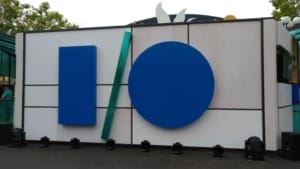T-Mobile’s satellite messaging service goes live on July 23
T-Mobile will launch its Starlink-powered satellite service on July 23. The service will initially offer messaging support and later expand to data.

T-Mobile is officially launching its new satellite service — powered by Starlink — on July 23, offering text messaging over satellite as its first feature. After months of beta testing, the T-Satellite service is now ready for public use. At first, it will support only messaging, but T-Mobile has big plans to expand it further before the end of the year.
Table Of Content
The service will be included for free with T-Mobile’s Experience Beyond plan. If you’re on any other plan or even with a different network, you can still use T-Satellite by paying US$10 per month. That’s right — it won’t be limited to T-Mobile customers, giving more people access to emergency or remote messaging when needed.
What you can expect at launch
Starting on July 23, you can send standard text messages (SMS) on Android and iPhone using satellite. You can also send picture messages (MMS) on Android. iPhone users will need to wait longer for MMS support — T-Mobile says that feature is “to follow.”
T-Satellite won’t give you full internet access just yet. Instead, the initial rollout is focused solely on messaging to ensure that basic communication is always available, even in areas where regular mobile signals don’t reach. That includes remote landscapes, national parks, or regions affected by storms.
But T-Mobile isn’t stopping there. Starting on October 1, the company plans to roll out satellite data access, though not every app will work immediately. The company works with a selected group of developers and expects apps such as AllTrails, Accuweather, and WhatsApp to support the new feature. While Apple and Google have been named partners, no specific apps from either company have been confirmed yet.
How T-Mobile stacks up against the competition
T-Mobile’s approach to satellite service stands out from that of its rivals. Verizon and AT&T, for example, are working with AST SpaceMobile for their satellite capabilities. Earlier this year, they even demonstrated actual phone calls via satellite.
However, Verizon is the only one of the two that has rolled out a messaging service so far — and even then, it’s only available on select Android devices.
Verizon and AT&T have raised concerns with US regulators about T-Mobile and SpaceX’s Starlink partnership. They argue that T-Mobile’s satellite signal could interfere with their plans. Despite these objections, T-Mobile and Starlink are moving ahead at full speed.
Looking ahead to broader satellite coverage
T-Mobile’s new satellite service could be a big step in closing mobile coverage gaps across the US. While it’s starting small — with just messaging — the long-term vision includes expanding satellite-powered mobile features for everyday users.
With backing from SpaceX, known for its aggressive development timeline, T-Satellite might just be the beginning of a broader shift in how people stay connected, even when they’re far off the beaten path.














